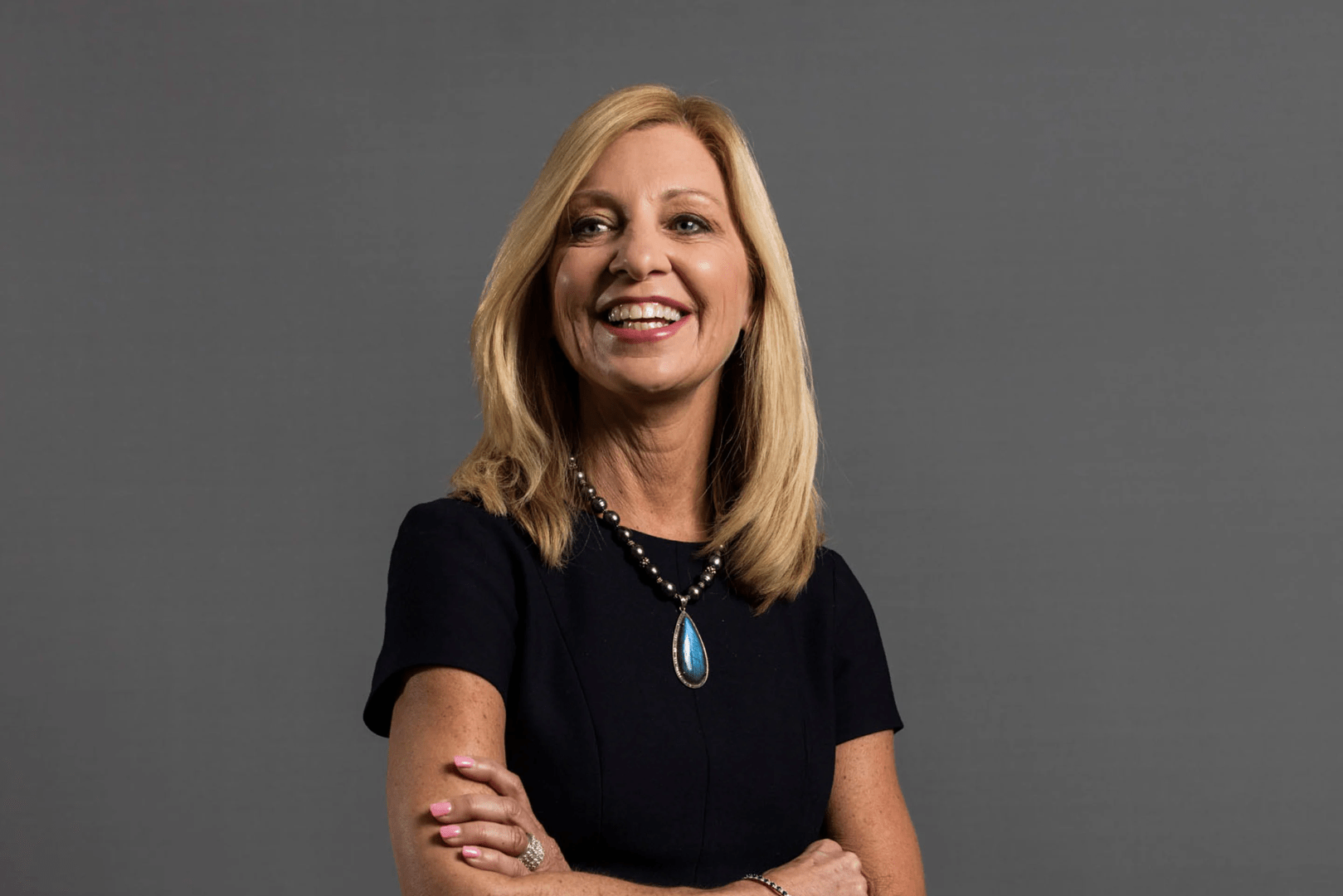

Chief Executive Officer
Recently CVS Health CEO Karen Lynch wrote in CNN an opinion piece on how business leaders needed to get serious about mental health and it has made a great impact for all those who read and understood her concern.
She writes: Even though mental health challenges aren’t anything new, we are living in a time with a series of unique stressors that are impacting every one of us, such as Russia’s invasion of Ukraine, as well as a pandemic that has stretched two-and-a-half years and continually reminds us that as much as we want to be done with it, we’re still living with a public health emergency that none of us has experienced in our lifetimes. It’s no wonder that people are reporting “alarming” levels of stress, according to the American Psychological Association.
Mental health challenges can truly impact anyone. I understand this on a personal level — my mother wasn’t able to get the help that she needed to address her struggles, and it tragically led to her taking her own life. Because of her experiences, I’m driven and committed to helping increase access to mental health services for everyone.
Mental health has been the collateral damage of the pandemic, but the uncertainty and social isolation of this time has at least raised awareness and increased our willingness to openly discuss things like depression, loneliness and burnout. A once hidden, private and even shameful topic, our mental health and the steps we take to preserve it has become a much more regular part of our daily lives, discourse and decisions.
But, even as we’ve learned to seek treatment for mental health challenges more readily, it’s clear that our needs are outpacing the growth of quality care solutions. Suicide is a leading cause of death in the US among children and adults, with nearly 46,000 people dying by suicide in 2020.
Both the public and private sector have been taking steps to address this issue, with the federal government establishing the 988 Suicide & Crisis Lifeline, for instance. And CVS Health has committed to a goal of reducing suicide attempts by 20% among Aetna members by 2025 through a number of different approaches, including direct outreach to the families of high-risk youth, as well as partnering with outpatient programs uniquely focused on suicide prevention and risk reduction.
While these are steps in the right direction, we also need to shift how we think about mental health — away from crises and toward mental well-being.
Business leaders have a tremendous role to play here. They have an opportunity to not only do the right thing for their employees, but also serve as a catalyst for change in how mental health is recognized as an everyday health issue. Here are several ways that they can help move our collective mindset in that direction:
Be transparent and open
As one of the country’s largest employers, we offer a number of resources to our colleagues to support their mental health at all stages. Our Resources for Living program is available to all of our employees and their families and provides varying levels of support for mental health, including stress reduction and help with crisis situations. But the quality of the resources only matters if we’re leading by example, talking about mental health issues directly with our employees and making sure they feel comfortable using the resources available to them.
Business leaders should be comfortable talking openly with their employees about their own mental health, whether during a large team meeting or a one-on-one conversation. By taking that first step, they can demonstrate the importance of speaking openly about mental health and give employees the support needed to open up about their own experiences.
Increase access to mental health care
Before the pandemic, CVS Health had about 20,000 virtual mental health visits. In 2020 and 2021, we had 20 million. We need to continue to break down barriers so people can easily locate the right resources to get the care they need, whether that is virtual or in-person. This can also help reach populations, such as young adults, that might be more comfortable talking about these types of issues in a virtual setting Of course not every company is in the health care industry, but every company will be impacted by health care and mental health in some way. The programs that we provide to our employees are available to anyone, but companies can also consider offering trainings like Mental Health First Aid or Talk Saves Lives, a program developed by the American Foundation for Suicide Prevention that provides research on risks and prevention.
Encourage peer support
Your employees can be your greatest advocate in this area. In addition to offering colleague support groups that are facilitated by clinicians, we publish a quarterly mental well-being resource guide for our leaders and managers. Each issue of this guide covers a specific topic — such as addressing burnout with resilience or suicide prevention — and includes relevant articles, tools and tips to help leaders better understand the topic. We also recently introduced a program through Thrive Global to support employees’ physical, mental and emotional well-being. The Thrive platform will enable our colleagues to manage stress, improve focus, strengthen connections with others and support their overall well-being.
Another key approach to encouraging peer support is to provide a forum where employees can connect on shared experiences. We’ve set up a program to allow employees to voluntarily share inspiring stories on our company intranet site about how they’ve overcome their personal mental health challenges. These stories always generate an overwhelmingly positive response from across the organization.
This is the time for us to start building on the mental health awareness that the pandemic brought with it, and to make the most of our hard-won lessons. We need to take those everyday conversations about well-being and turn them into real action.
The Hero
Karen S. Lynch is now President and Chief Executive Officer of CVS Health. In her new role, Karen leads nearly 300,000 colleagues who are passionate about transforming health care to be simpler, more convenient and more personalized.
Karen has more than three decades of experience in the health care industry. Prior to becoming CEO, she was Executive Vice President, CVS Health and President of Aetna, responsible for driving the strategy to deliver consumer-focused, high-value health care to the millions of people Aetna serves. For the last five years, Karen has been named among Fortune’s Most Powerful Women in Business, and in 2020, she was recognized on Forbes’ list of The World’s 100 Most Powerful Women. Karen credits her chosen career path in health care to her family life experiences. She spent nearly a decade in insurance before returning to graduate school to pursue her MBA, saying, “I wanted to broaden my financial background to have more exposure to the business aspects of running a company”.
Karen will focus on accelerating the progress we’ve made to meet the evolving health needs of consumers. Under her leadership, CVS Health will create even more connected experiences across our unique combination of assets — including more than 9,900 pharmacies and over 1,000 MinuteClinic and HealthHUB locations — for every meaningful moment of health in a person’s lifetime. Karen’s most immediate priorities include leading our national response to the COVID-19 pandemic, improving the health of communities across the country, and driving meaningful social and policy change.
Wanting to be Part of People’s Lives
In an article in NY Times by David Gelles, he talks about how CVS stores remained open throughout the pandemic, though its army of office workers has been working from home for nearly two years. The pharmacies became vaccine distribution centers and testing sites. A jury last year found that CVS and other drugstore chains contributed to the opioid epidemic. And Karen, who prefers to steer clear of politics, said she was at once holding firm in the company’s commitment not to donate to Republicans who voted against certifying the 2020 presidential election results, while also continuing to lobby against more public options for health care.
Karen, who rides her Peloton to relieve stress and champions physical and mental health, says she is unfazed by the myriad complexities, and often comes back to the words of her aunt, who raised her.
“The reason I’m as decisive as I am is because when I was growing up, my aunt told me that you were going to have to make decisions in your life, and you’re going to have to live with those decisions right, wrong or indifferent,” she said. “When you make decisions as often as I do, you’re going to make a bad call. You just have to readjust.”
I never thought I would take over as C.E.O. in the middle of a pandemic. But throughout my entire career I have been faced with a number of different kinds of challenges and changes and big strategic issues, and this is different, but it’s no different. I stepped back and said, “What is our true purpose of the company?” What I want to do is make sure that people have access to high-quality, affordable health care, and that we as a company can help people navigate the health care system. Because we’re so central in people’s lives, we have the ability to be even more central in people’s lives. That’s the mark I really want to make, is to be part of someone’s everyday life where if they’re healthy, they’re engaging with us to stay healthy. If they have health issues, they’re engaging with us so that we can help manage and navigate that.
On being asked effective ways to reduce health care costs for everyday Americans & the company’s role in the same, Karen says: There’s a couple of things. One is there’s the site of care. Our role is offering an alternative site of care, either in our retail locations, or in the home with virtual connections. We’re entering into the primary care space because we believe that primary care has real significant influence over the cost of health care. And I’m pretty passionate about the fact that the head is attached to the body, and most people experience behavioral health issues when they are experiencing physical health issues. We only deal with the physical health. We don’t deal with the behavioral health part, and I think there’s more we can do.
When asked how she is addressinf the vaccine skepticism in the country, Karen said: We’ve been working in the communities to educate people. We actually put vans in communities and we’ve used all of our resources. When we started, we put the stores in these underserved communities first, and about 40 percent of our vaccines are in those underserved communities. Obviously there’s more work to be done. It’s education on all of our parts. We’re doing our part. I know the government is doing their part. And I’ve also done it with a little bit of a stick with my own team, by doing a vaccine mandate.
We’re in health care, and this is a public health issue, and we should be on the forefront of that. I don’t think vaccines are going away. I think this is going to be an endemic thing, and I think we’re going to see these annual shots. That will be part of a role we continue to play in keeping America healthy.

" What I want to do is make sure that people have access to high-quality, affordable health care, and that we as a company can help people navigate the health care system. "
Karen Lynch
Chief Executive Officer




© THE CEO PUBLICATION 2021 | All rights reserved. Terms and condition | Privacy and Policy